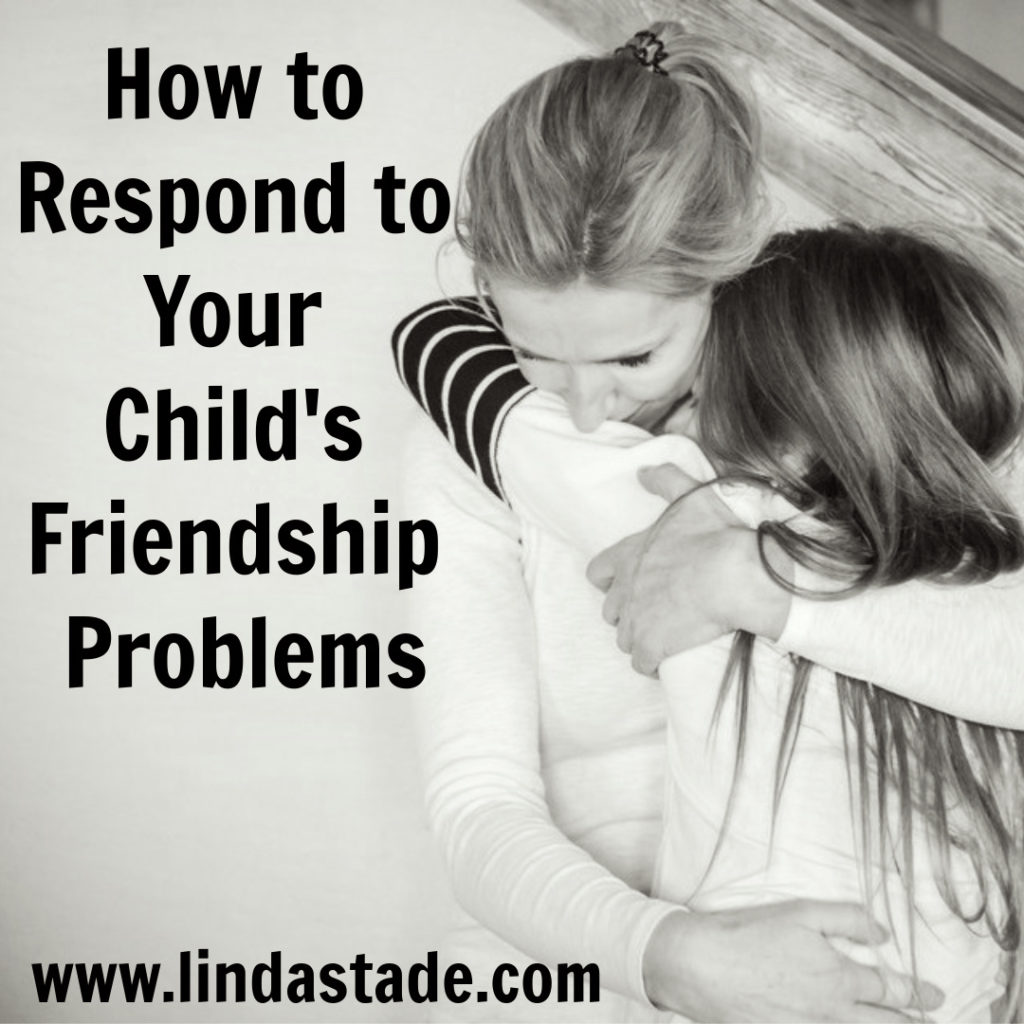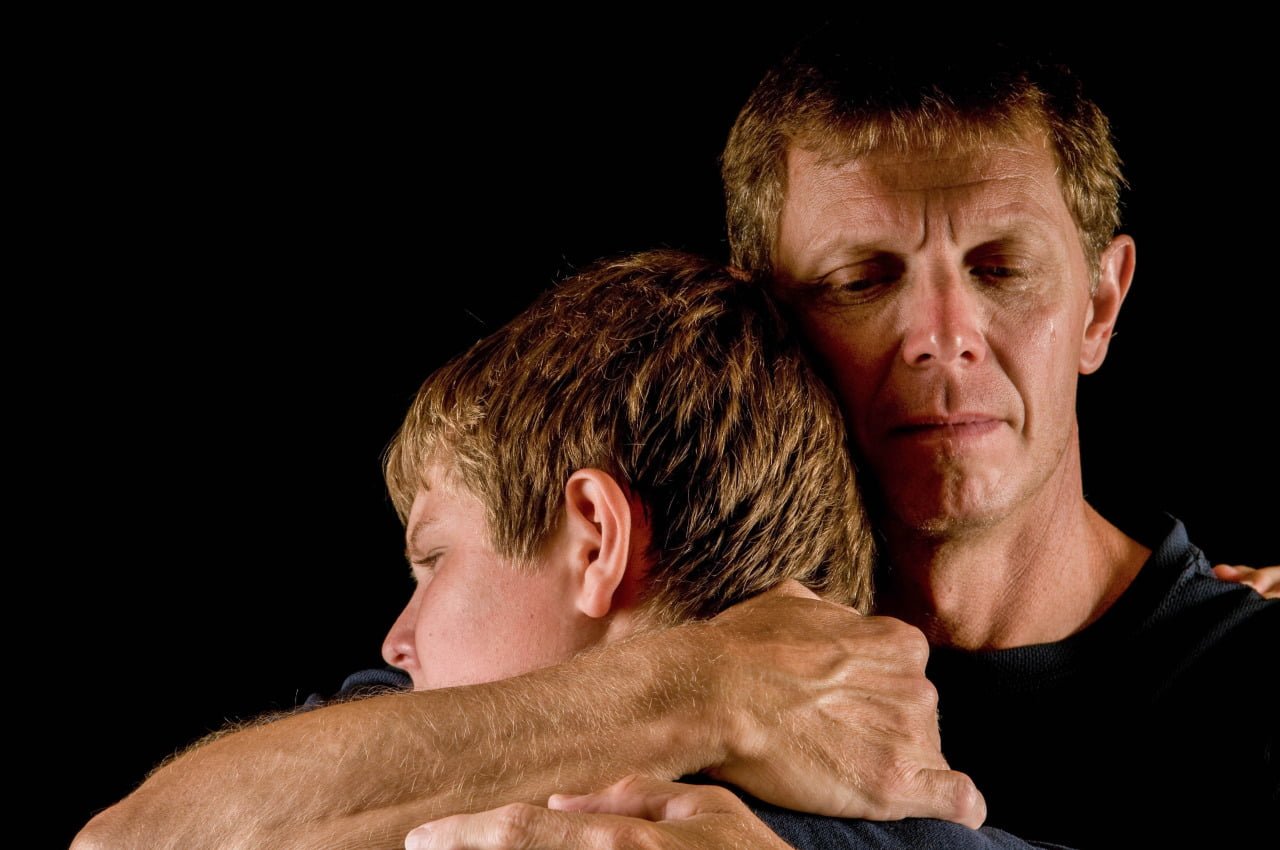Children’s friendship problems can be overwhelming for them. Here’s how we can respond in a helpful manner.
Your daughter comes home from school and her heart is broken. Her best friends have told her they don’t want her to come to the sleepover they have planned for the weekend. Or your son sees on Snapchat that all his mates are at the skate park without him. To your child, time has stopped and the colour has seeped out of the world. They feel physically sick.
For an adolescent, friendships are incredibly important, often akin to love affairs. In them, they find an identity and a place in their newly-emerging, social network. Often they share their deepest secrets and their greatest joys. Every emotion is magnified. Naturally, when something goes wrong it can feel devastating.
So what do you do and say when your child comes to you broken-hearted and feeling as though their world is crumbling?
1. Listen without judging or fixing
The first thing you need to do is remove yourself from any distractions, sit with your child and give them your complete attention. Don’t interrupt, or cluck or cry or give agitated body language. Just listen quietly until they have told you the whole story, from beginning to end. Listen without judgment and without trying to fix it.
Comfort your child and validate their feelings, “You were the only one not invited, no wonder you’re upset”. There is nothing wrong with crying so don’t feel as though you have to toughen them up. Crying is an effective and healthy way of regulating emotions.
Make sure you have a complete understanding of their perception of what happened. Remember that it is perception. When we recount events we always filter the story with our own emphasis. I’m not saying your child is lying but there is what happens and what we make it mean. There is their side of the story and the other sides.
2. Empower instead of catastrophising
How you respond at this point is important. If you react strongly you make the incident into a catastrophe. You may feel like wringing someone’s neck, but you can’t say that. Don’t vilify the other party, they are likely to end up friends again, plus….don’t vilify people, your child is learning from you.
You may want to wrap your child in your arms and sob, you can’t do that either. When you overreact you create fear in your child. They start to question their self-worth and your faith in them.
Your child will be looking very carefully for your reaction, so show them that you believe in them. Send the message that you think they can handle this. Bad things have happened before and 100% of the time they have survived. Let them know how loved they are and that fact will never change.
3. Distract from friendship problems
Now is the time to distract, not with light, colour, and action, but with the comfortable and familiar routines of home. Don’t let them dwell. Home is a sanctuary, let it be that way. Kids draw energy and power from the familiar and from safety. They need you to act normally. Don’t pretend that nothing has happened, but stay on track.
Don’t loosen boundaries to compensate for what is happening at school. For example, don’t encourage your child to sleep with you or avoid sporting commitments. Normality is important. If everything is good and normal at home, the rest of the world can be conquered.
4. Press pause
The temptation now is to call the parents of the other children or rush down to the school. You feel distressed and you think that taking action will make that feeling go away. That’s normal and understandable… but don’t. Wait. Stop and sleep on it. You’re right, it may help you escape your negative feelings, but it won’t necessarily help your child.
When you rush out and try to solve the problem for your child two things definitely happen:
-
- You disempower your child. They already feel their social power has been taken. You can’t now take away their individual power.
- You take away their opportunity to grow. Hurts like this one will happen countless times in their life, help them to be prepared. Kids who are supported in resolving their own conflicts develop a sense of their own competence in this area.They believe they are capable.
Sometimes making those calls or going up to school will make things worse. So just take a breath.
5. Problem-solve together when everyone is calm
When your child is calm and has had plenty of time to move out of their big emotions, then it’s time to talk. As tempting as it will be to tell your child how to handle the situation, try not to. If you want them to grow into an adult who can make good decisions and act instead of purely reacting, you have to allow them to practise. So guide, but don’t take over. Obviously, the younger the child, the more guiding you will have to do. Be aware, there is no instant fix, but you can help your child navigate the drama.
First and foremost, your child needs to decide whether they want to fix the friendship or not. Unhealthy, unhappy friendships shouldn’t be maintained. Maybe new friends are the answer. Your child needs to ask themself some important questions.
What If It Doesn’t Blow Over?
Friendship at this age is intense and sometimes fiery, but conflict tends to be short-lived. In most cases, these upsetting incidents will be resolved fairly quickly by themselves. That said, if the incident is not short-lived, or constitutes bullying, then you do need to work in partnership with the school.
Finally…
Talking to your kids about friendship is really important, not just when things are going badly. Teach kids to recognise what makes a good friend. When things are going well ask them what they like about their friends and what they like about themselves when they are around those people. You can download my FREE activity guide Talking To Your Kids About Friendship here.
Expose them to a large variety of potential friends in lots of different contexts. And encourage them to have a lot of different friends for all the different aspects of their lives. Adolescents change a lot and so do their friends. Emotional literacy in this hugely impacting sphere of their lives is essential.
Written by Linda Stade. ©Santa Maria College. All rights reserved








